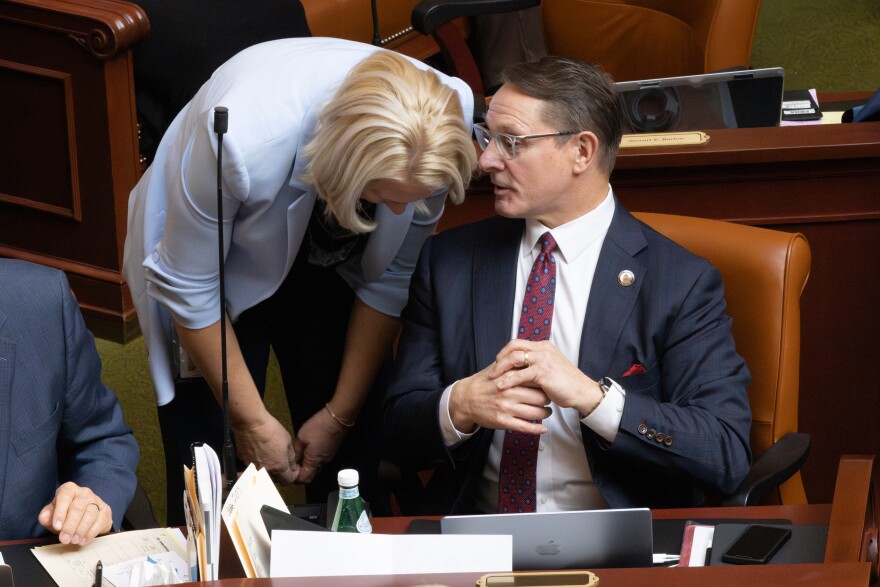Back in 2022, Utah lawmakers banned books and materials deemed “pornographic or indecent” in K-12 schools — and opened the doors to book challenges and reviews.
Now that bill’s architect, Rep. Ken Ivory, R-West Jordan, says there should be a distinction between what is “objectively” and “subjectively” indecent.
“If it's objective material, take it out of the school, be done with it,” Ivory told lawmakers at a Jan. 23 House Education Committee meeting. “If it's subjective material, then go through the review.”
Referred to as the “bright line rule,” instructional content that is determined by a local school board or local education agency to fall under the definition of pornography in Utah code would be classified as “objectively” indecent and subject to removal.
If that material is found to be “subjective,” it would then be put through a further review process to determine whether or not it should be pulled.
Attempts last year to take another bite at that apple didn’t make it out of the Legislature.
This year’s attempted update, HB29, however, follows national attention on the Davis School District over the summer when it temporarily banned the Bible in some schools after a parent challenged it. That drew the ire of both Ivory and other lawmakers and put the sensitive materials law back under the microscope.
“What this bill now does is it provides for clarity in the implementation and then uniformity across the state and how we apply the standard that was already in law as to what is criminally indecent,” Ivory said.
The Sensitive Material Review Amendments would also make it easier for books containing “objectively” indecent material to be banned statewide. Only three school districts — or a combination of two districts and five charter schools — would need to do so for a statewide ban to go into effect. Opponents have taken issue with that, saying a higher bar is needed.
“Literally, a couple of individuals in just a couple of communities can usurp the ability of locally elected school boards to represent their own constituents by holding a review process,” said Sarah Jones, the director of government relations for the Utah Education Association.
“More importantly, a couple of individuals making these complaints can usurp the ability of every other parent in the state to make choices for their child through their representation at their local school board level.”
Democrats on the committee shared the same concerns.
“The minority part of just a few districts really bothers me,” said Rep. Carol Spackman Moss, D-Millcreek. “Because districts are different. Some are rural, some are urban. They have different needs, different types of kids … To switch it now and have this small number of schools and people able to make these decisions just doesn't seem like it's the right policy at all.”
The bill moved out of the House Education Committee on a 10 to 2 party-line vote. It now heads to the full House for debate.






